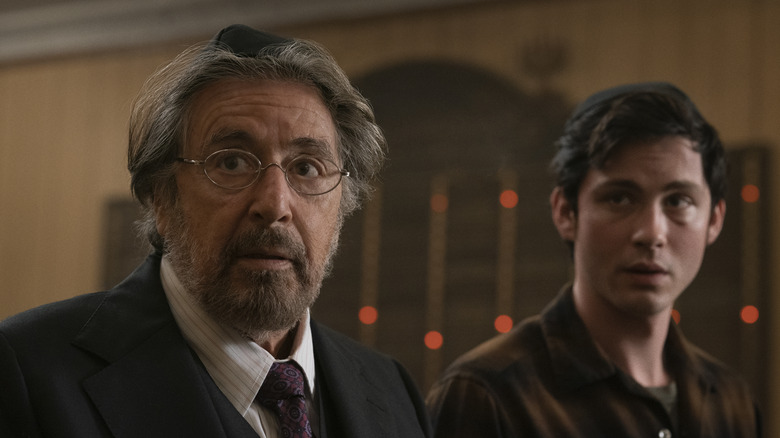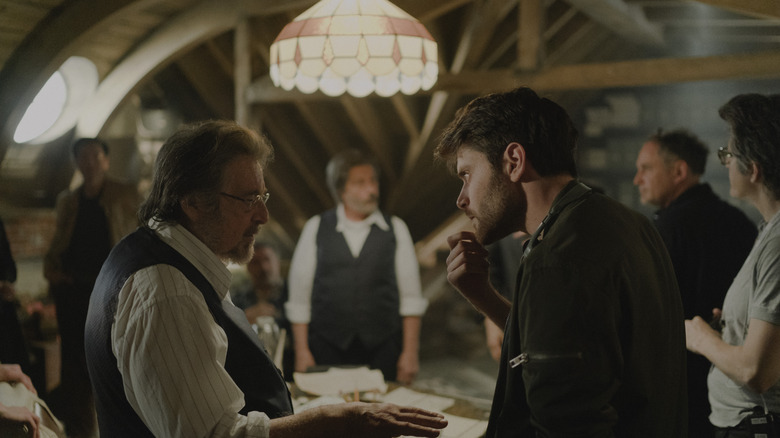David Weil Had Incredibly Personal Inspiration When Creating Hunters
Series creators often take cues from real-world events. While some focus on headline-making stories, others look towards their personal experiences; the latter is proving to be the case with Amazon's "Hunters." It follows a unique team in the '70s who are intent on destroying surviving Nazis, but their task is hindered by a surprising traitor and the resurgence of an evil historical figure previously thought dead. Season 2 sees the team dismantled before returning to one another as they resume their mission.
One of the series' main characters, Jonah Heidelbaum (Logan Lerman), joins the group at a very vulnerable time in his life. The death of his grandmother opens up a trove of secrets and sets him up to join the team. For Jonah, this becomes not only a quest for revenge but a journey to find out about a world he was previously unaware of. Creator David Weil revealed that he made "Hunters" with a strong connection to his own past in mind.
Weil childhood played a major part in creating Hunters
Weil's creation of Jonah acts as a bridge to his life, as he saw firsthand how the rigors of WWII and the Holocaust impacted his family. He's described the series as a love letter to his own grandmother, a Holocaust survivor, while also addressing a troublesome trend in today's world. Seeing a rise of anti-Semitism, racism, and xenophobia made it even more important for Weil to tell this story (via Variety).
Making a protagonist Jewish was essential for Weil in bringing "Hunters" to life, a desire that stems from a childhood in Long Island that gave him few representations of Jewish heroes. Weil cited titles like "Schindler's List" and "Inglorious Basterds" as key examples of films centered around the Holocaust that failed to feature a Jewish character as the lead. "I wanted to tell a story about Jewish characters getting justice and vengeance for other Jewish characters," he told Insider.
Weil also revealed some of the inspirations he incorporated into the series. According to Weil, "The Boys from Brazil" became a bigger source than "Inglourious Basterds." Still, the latter plays a part in the show's violent moments, while "Munich" was a reference for the opposite end of the spectrum.

